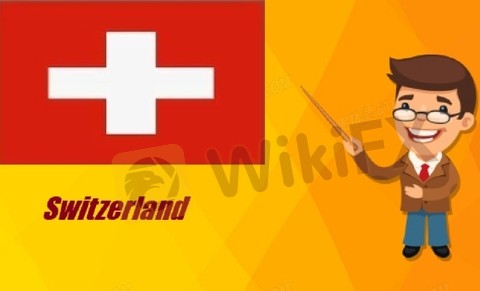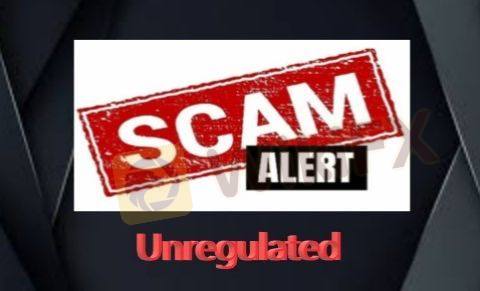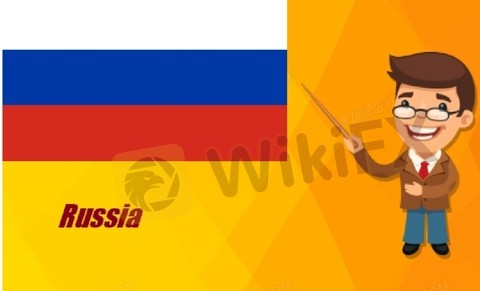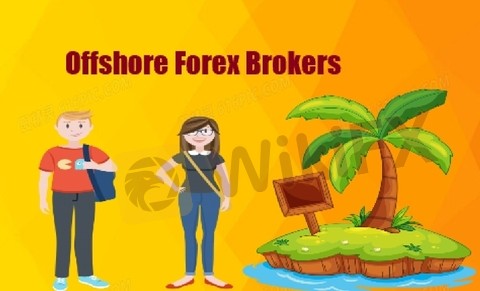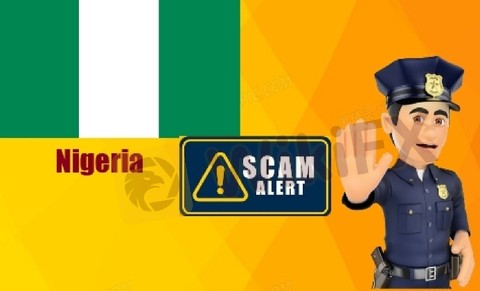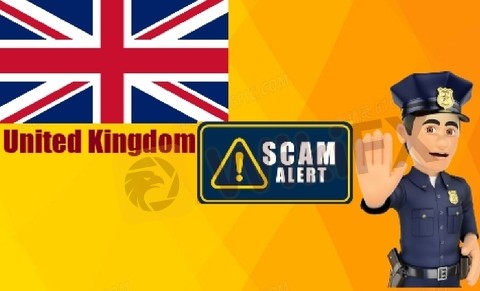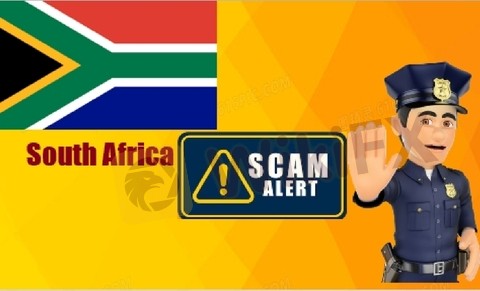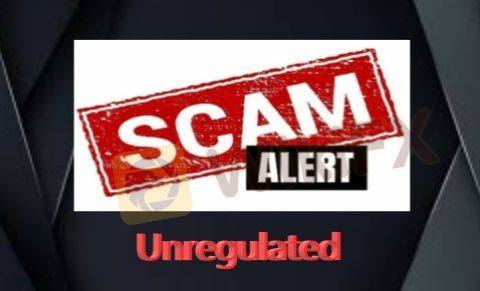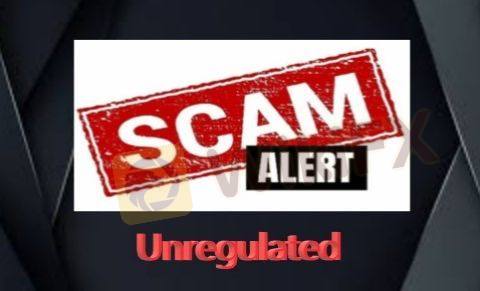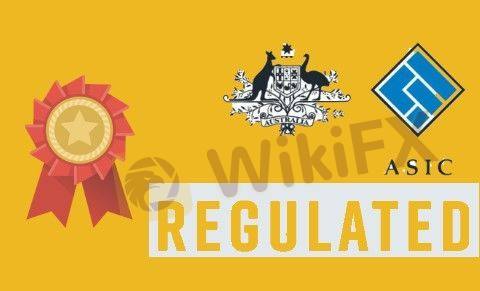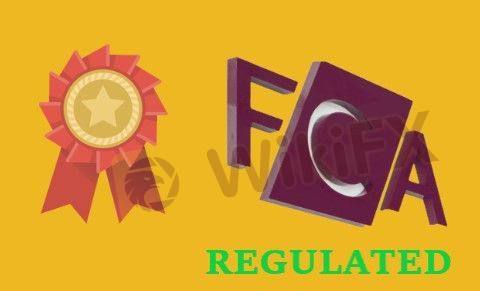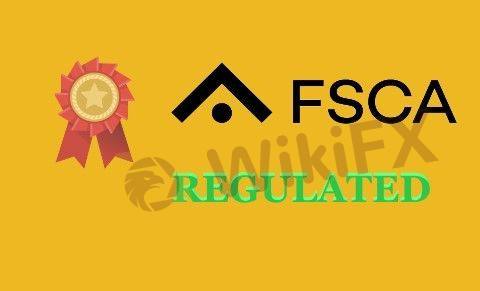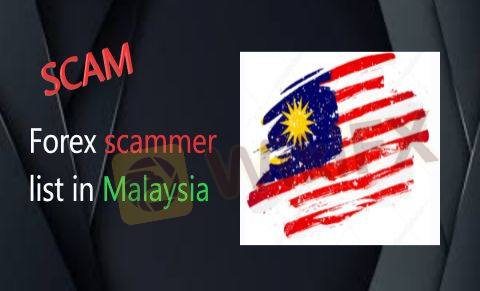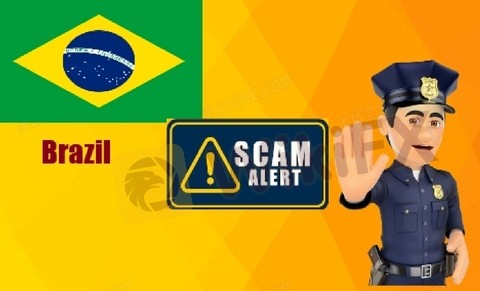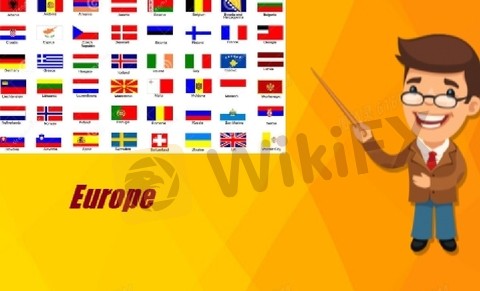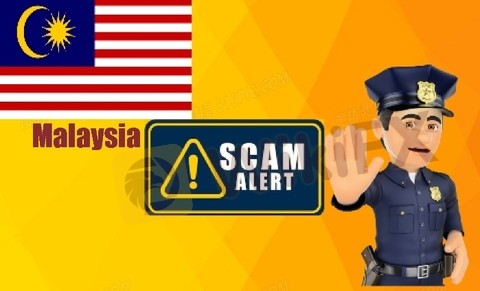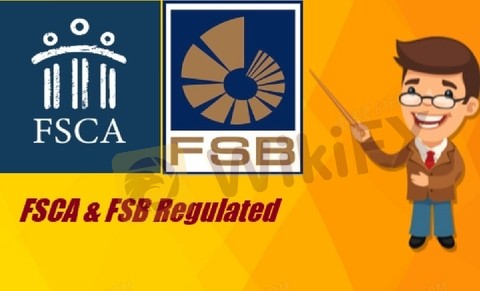With the vibrant development of the forex market, an increasing number of investors are drawn to the trading opportunities it offers. As an over-the-counter market, reasonable regulatory frameworks are essential, providing protection for investors and, to some extent, safeguarding brokers. Regulatory authorities at various levels play a crucial role in the forex market. However, despite the widespread presence of regulation, numerous unregulated brokers continue to operate in the forex market, including fraudulent ones.
By reading this article, you will gain a deeper understanding of forex regulatory authorities, the reasons for brokers choosing not to be regulated, and the pros and cons of such a decision. Finally, we will guide you on how to identify whether a broker is regulated and further assess whether it might be a scam.
Why the Forex Market Needs Regulatory Authorities?
Forex is an over-the-counter market, meaning that trades do not go through a central exchange. Other major markets have exchanges; for instance, the U.S. stock market has the New York Stock Exchange and Nasdaq, and U.S. futures have the Chicago Mercantile Exchange (CME). Most major exchanges require brokers accessing them to adhere to regulations.
The absence of a central exchange means that forex brokers engage in direct transactions with other brokers and liquidity providers. These brokers come from all over the world, and different countries have varying attitudes toward forex—some are strict, some are lenient, and more extreme cases involve countries that either completely ignore or prohibit forex. Therefore, regulatory authorities responsible for overseeing each region have emerged. These regulatory authorities, to some extent, establish rules and regulations, maintain market order, and play a crucial role in the forex market.
Imagine if a broker were to establish itself in a country without forex regulation. In such a scenario, they would not be required to comply with regulations. However, uninformed investors would ultimately bear the consequences of such actions—they might invest a significant portion of their savings, only to see it vanish without a trace.
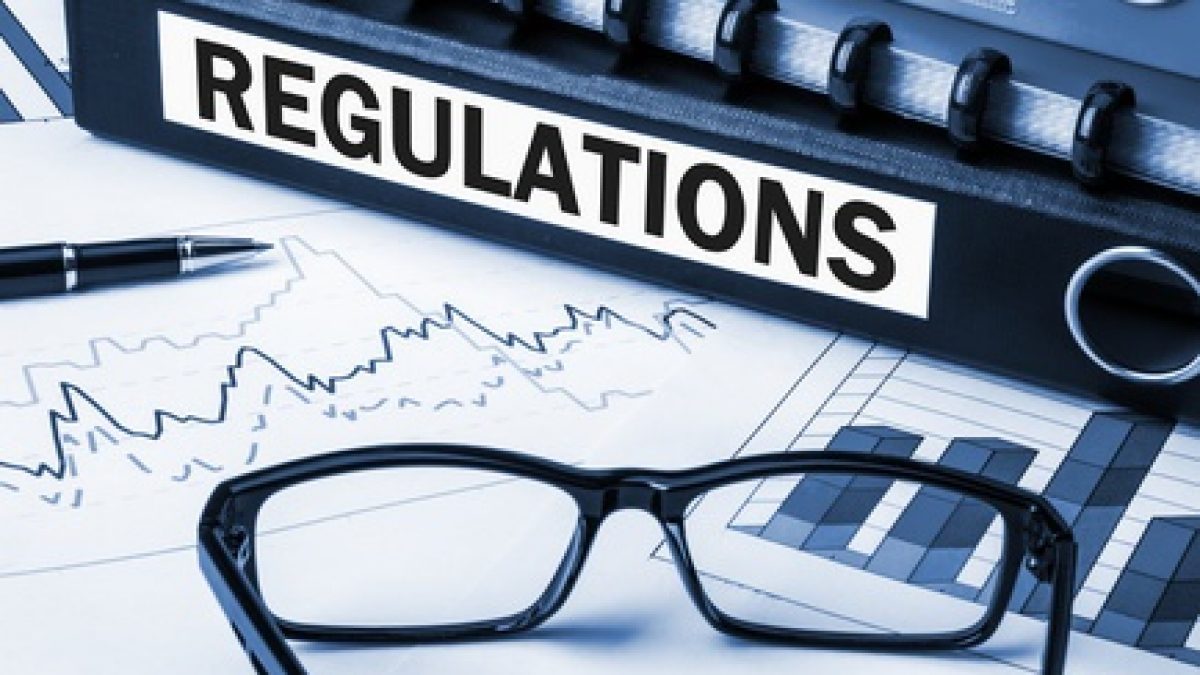
What Aspects are Typically Regulated by Regulatory Authorities?
Similar to regulatory bodies for on-exchange markets such as stocks and futures, regulatory authorities in the forex market also stand in a position to protect the legitimate rights and interests of investors. They conduct multi-dimensional assessments of brokers to ensure their lawful operations. With the presence of these regulatory authorities, both investors and brokers can navigate the forex market smoothly. So, in what aspects do regulatory authorities primarily focus on protecting investors? Or, to put it another way, in what aspects do regulatory authorities typically regulate brokers?
We believe it mainly revolves around the following two points:
Risk Management: Forex brokers must establish robust procedures to ensure that their clients do not face excessive risks. Not all investors are rational, and there may be aggressive investors attempting high-stakes gambles. While they might succeed, regulated brokers cannot allow such enormous potential risks. Therefore, brokers typically set appropriate leverage limits and margin requirements to ensure that investors trade within reasonable limits.
Customer Fund Protection: Brokers must keep client funds in separate accounts, known as “segregated client accounts.” This helps protect client funds if the broker becomes insolvent. In some jurisdictions, there are additional requirements. For example, in the UK, investors trading with brokers regulated by the Financial Conduct Authority (FCA) have their funds insured to ensure compensation in the event of broker bankruptcy, with the current compensation amount being £85,000.
Additionally, there are clear regulations in other areas:
Disclosure Requirements: Forex brokers must provide clients with clear and accurate fee information.
Complaint Handling: Brokers must have formal complaint handling procedures to promptly and fairly address client complaints.
Anti-Money Laundering (AML) and Know Your Customer (KYC) Requirements: Forex brokers must comply with regulations to prevent money laundering and the financing of terrorism.
Training and Competence: Forex brokers must ensure that their staff receives proper training and has the capability to fulfill their duties.
Fair Trading Practices: Brokers must execute trades at fair prices reflecting market conditions. This is particularly crucial for market makers, as most brokers act as market makers, meaning they act as counterparties to investors. Deviating from fairness in this regard can have dire consequences.
What Types of Regulatory Authorities Exist?
Certainly, not all regulatory authorities have the same level of efficacy, and there are significant differences in the operating methods and strictness among regulatory authorities of different levels. The following are three types of regulatory authorities:
Top-Tier: Top-tier regulatory authorities set the highest standards for brokers operating within their jurisdiction and require strict compliance from brokers under their supervision. Top-level regulatory authorities are located in the most powerful financial markets. These include:
United States: NFA and CFTC. The National Futures Association (NFA) and the Commodity Futures Trading Commission (CFTC) are among the most respected financial regulatory authorities globally.
United Kingdom: Financial Conduct Authority (FCA).
Canada: Investment Industry Regulatory Organization of Canada (IIROC), formerly known as IIROC.
Australia: Australian Securities and Investments Commission (ASIC).
Mid-Tier: Mid-tier regulatory authorities operate in financial markets with comparatively weaker strength, and their requirements are not as strict as those of top-level regulatory authorities. Mid-level regulatory authorities include:
Cyprus: Cyprus Securities and Exchange Commission (CySEC). As a member of the European Union, CySEC's financial regulation and operations comply with the European MiFID financial coordination law. Many overseas retail forex brokers have obtained CySEC registration.
Malta: Malta Financial Services Authority (MFSA).
Latvia: Financial and Capital Market Commission of Latvia (FCMC).
Bottom-Tier:Bottom-tier regulatory authorities have the lowest regulatory intensity, the shortest regulatory history, and the lowest enforcement levels. Many of these regulatory authorities belong to smaller or developing countries. Examples include:
Seychelles: Seychelles Financial Services Authority (SFSA).
Saint Vincent and the Grenadines: Financial Services Authority of Saint Vincent and the Grenadines (SVG FSA).

Why Some Brokers Are Not Regulated?
We have already understood the crucial role regulatory authorities play in the forex market. They safeguard investors while providing a structured framework for brokers, ultimately maintaining order in the forex market. So, why do numerous brokers choose not to undergo regulation?
The first reason that comes to mind is that these brokers may attempt to operate outside the system, using illegal means to defraud investors of their hard-earned money. While this is indeed one of the reasons and a significant risk, brokers not accepting regulation have more motives, as outlined below:
Regulatory Costs: Regulatory authorities often charge brokers annual fees to maintain their regulatory status. For instance, the National Futures Association (NFA) charges retail forex brokers $125,000 annually. There are also compliance costs, such as audits or holding cash reserves, as required by regulatory authorities. These expenses are not problematic for large brokers, but many smaller brokers lack the volume to support such costs. High cash reserve requirements also limit the scope and depth of a broker's business. Operating without these costs may enable some brokers to provide better services to their clients.
Greater Flexibility Outside Regulation: Some regulatory authorities may restrict product permissions in certain regions. For example, since January 2021, the Financial Conduct Authority (FCA) prohibited brokers under its regulation from selling cryptocurrency derivatives to retail consumers in the UK. Other restrictions apply to instruments like contracts for difference (CFDs) and binary options. Moreover, many regulatory authorities strictly limit the use of leverage, making a leverage ratio of 1:2000, for example, mostly unattainable. Unregulated forex brokers can bypass these restrictions and offer clients more choices. This flexibility is suitable for clients with a high risk tolerance.
Location: Some brokers operate in regions without regulatory frameworks, such as South Africa, Nigeria, and other African countries.
In conclusion, regulatory authorities establish rules to protect traders from malicious activities, such as unfair price filling and the misappropriation of client funds. However, a subset of thriving unregulated forex brokers often provides more flexibility than their regulated counterparts, offering higher leverage and a broader market selection. Nevertheless, being unregulated remains a significant risk. When considering trading with an unregulated broker, it's crucial to carefully examine the broker's history for any fraudulent activities. Keep in mind that a clean history does not guarantee the absence of fraud in the future. If you choose such a broker, be mentally prepared for all possibilities.
WikiFX provides a comprehensive platform for researching forex brokers. Using WikiFX, you can check the regulatory status, license information, and whether the authorization is genuine or expired/revoked. Additionally, WikiFX collects comments from traders and presents valuable information. By combining other traders' evaluations, you can thoroughly review a broker's qualifications.
When you want a comprehensive understanding of a forex broker, turn to WikiFX to find the answers!
Advantages and Disadvantages of Unregulated Forex Brokers
As mentioned earlier, unregulated brokers offer traders greater flexibility but expose them to the constant risk of financial fraud. It can be said that being unregulated is a double-edged sword. So, what are the specific advantages and disadvantages of being unregulated? WikiFX provides the answers:
Advantages
Higher Leverage:As part of risk management responsibilities, many regulatory bodies impose limits on leverage. For example, U.S. regulatory bodies limit the leverage for major forex currency pairs to 50:1, while the UK FCA and Australia ASIC limit it to 30:1. These leverage ratios may not satisfy some aggressive traders, leading them to choose unregulated brokers for higher leverage. Unregulated forex brokers are not bound by these restrictions and typically offer higher leverage, such as 100:1, 500:1, or even 2000:1. This is useful for accounts of any size, especially smaller ones, providing an opportunity for significant returns on small investments. However, it's crucial to note that losses incurred through leverage can exceed the original capital. Unregulated brokers are also likely not to have negative balance protection (mentioned later), so careful consideration is advised before using high leverage!
Lower Deposit Requirements:Unregulated brokers usually require relatively lower deposits. This is particularly useful for forex beginners who want to test the waters with a smaller account size. One of the primary rules of trading is only risking capital that you can afford to lose.
Lower Costs:Accepting regulation can be costly for brokers. Therefore, they spread a part of their operating costs across various fees, such as increasing spreads and commissions, adding account maintenance and inactivity fees, and charging deposit and withdrawal fees. Unregulated forex brokers, without the constraints of fees like annual fees and cash reserve requirements, can generally afford lower spreads and commissions and often do not charge additional fees. For investors, choosing an unregulated broker can indeed result in lower trading costs, as long as it remains compliant.
Market Access:Unregulated forex brokers may be the easiest way for traders in certain countries to enter the market, as some regulatory bodies restrict specific markets. For example, U.S. regulatory bodies do not permit contracts for difference (CFDs), and other individual regulatory bodies prohibit forex trading or binary options.
Disadvantages
Lack of Client Fund Segregation:Unregulated forex brokers are not obliged to segregate client funds from their company operations. In contrast, almost all regulatory bodies require brokers to segregate client funds and never use them for company operations—this is one of the most critical protections regulations offer and a key reason why many traders exclusively use regulated brokers. Unregulated brokers may claim to hold client funds separately. Still, without regulatory oversight, there is no way to verify this.
Difficulty in Fund Withdrawals:There is nothing preventing unregulated brokers from delaying or obstructing fund withdrawals, especially in cases of financial strain or misappropriation of client funds. These are real issues—some unregulated brokers have failed to return client deposits, leaving clients with minimal legal recourse.
Unfair Trading Conditions:Due to the decentralized nature of the forex market, which operates as an over-the-counter (OTC) trading market without a centralized exchange, many brokers play the role of market makers within this environment. In other words, brokers act as the counterparties when traders execute transactions. Therefore, traders rely on brokers to execute trades at fair prices. Regulated brokers are obligated by regulatory authorities to execute trades at prices that reflect market conditions. Unregulated brokers, on the other hand, do not have this obligation. They may not execute trades from a fair standpoint and might even act against traders' interests, potentially poorly executing or outright neglecting traders' instructions. For instance, they may execute trades at any price they deem appropriate, irrespective of market conditions, attributing discrepancies to slippage. Furthermore, they may intentionally close trades that are unfavorable to them. As a result, traders find themselves at a significant disadvantage with no assurance of fair play in such scenarios.
Lower Solvency Standards:Regulatory bodies typically require brokers under their jurisdiction to maintain minimum levels of financial stability, often demonstrated through cash reserves. Unregulated brokers adhere to different standards, increasing the likelihood of financial instability. As mentioned earlier, this also raises the chance of brokers seizing client funds during financial difficulties since they are not obligated to hold them in separate accounts.
Potential for Other Fraudulent Activities:Being regulated means regulatory bodies have insight into the individuals behind broker operations, making it more challenging for these individuals to engage in fraudulent activities without legal consequences. However, unregulated brokers have no such constraints. They are not bound by any legal regulations, so if they engage in fraud, the consequences can be severe, and you may have difficulty recovering your funds. The forex market today is rife with fraudulent activities, and choosing an unregulated broker exposes you fully to these risks.
Confidentiality Measures:Unregulated brokers may have fewer safeguards in place to ensure the confidentiality of your personal information, such as banking or payment details. The potential leakage of critical information could lead to more significant issues, possibly extending beyond the realm of forex trading.
How to Check if a Broker is Regulated?
You can take the following steps to ensure that your broker is regulated:
Step 1: Identify the BrokerFirst, you need to obtain the complete legal name of the broker or company you are interested in. Make sure the spelling is correct.
Step 2: Determine the Relevant Regulatory AuthorityAs mentioned earlier, different countries have different regulatory authorities. Therefore, you need to determine which country the broker operates in and identify the regulatory authority it discloses on its website. For example, in the United States, brokers are regulated by the Financial Industry Regulatory Authority (FINRA). In the United Kingdom, it is the Financial Conduct Authority (FCA). In Australia, it is the Australian Securities and Investments Commission (ASIC).
Step 3: Visit the Regulatory Authority's WebsiteMost regulatory authorities have online portals or search functionalities on their websites that allow you to check the status of a broker.
For the United States: Visit FINRA's BrokerCheck website (https://brokercheck.finra.org/)
For the United Kingdom: Check the Financial Services Register on the FCA website (https://register.fca.org.uk/)
For Australia: Use ASIC Connect's Professional Registers (https://connectonline.asic.gov.au/)
Step 4: Use the Search FunctionEnter the broker's name in the search bar. In most cases, this should provide information about its regulatory status.
Step 5: Review the ResultsExamine the information carefully. Regulated brokers should have a registration number and detailed information about their activities. Pay attention to any disciplinary actions, complaints, or violations associated with the broker.
The above steps are general procedures for checking if a broker is regulated. Ordinary traders may need to invest some time in implementing them. However, WikiFX streamlines this process for you by consolidating and collecting regulatory information for over 50,000 brokers in over 60 countries worldwide. You can simply enter the name of the broker you want to search for on the WikiFX official website to browse all the regulatory information for that broker. We display specific details such as license numbers, operational status, and more for easy reference.

How to Verify if a Broker is a Scam?
Checking whether a broker is involved in fraudulent activities may involve considering the following aspects for your reference:
Online Search and Reviews:Conduct an online search for the broker's name and review comments, particularly those from actual clients. Customer feedback can be instrumental in determining whether the broker is trustworthy.
Test Deposits and Withdrawals:Start with a test deposit and conduct a few small trades. Observe whether the trades are executed at the prices reflected on the charts. Can you easily and quickly withdraw your funds? This helps assess the broker's reliability and responsiveness.
Check Regulatory Announcements:Check announcements from regulatory authorities. Regulatory bodies often publish blacklists, identifying blatantly fraudulent brokers to prevent residents within their jurisdiction from falling victim to these unscrupulous entities.
Of course, these methods may not completely and accurately determine if a broker is involved in fraudulent activities. For this reason, WikiFX provides a more comprehensive perspective. WikiFX offers traders a comprehensive rating across five categories: License Index, Business Index, Risk Control Index, Software Index, and Regulatory Index. WikiFX collects various issues encountered by actual traders during transactions, ensuring the authenticity of information. User reviews are an integral part, and WikiFX has a robust user review system where real traders share their experiences. If fraudulent activities occur, they will be exposed on this platform. Even more reassuringly, WikiFX conducts on-site investigations of key brokers to verify the presence of legitimate office spaces and the employment of qualified, trained staff.
Therefore, before investing, it is advisable to check broker information and user reviews on WikiFX.
In the unfortunate event of encountering fraud, you can use WikiFX's Exposure Center. By providing evidence of fraud, WikiFX conducts in-depth investigations, reassesses the credibility of risky platforms, and helps protect investors' legitimate rights. Additionally, to address withdrawal challenges faced by legitimate brokers, WikiFX has introduced the EMC Rights Protection Channel, dedicated to advocating for swift resolutions. It is noteworthy that WikiFX has successfully exposed over 7000 illegal platforms, recovering over 90 million USD for more than 25,000 affected investors.
Furthermore, we recommend that victims of fraud seek assistance directly from local law enforcement or legal professionals.

10 Unregulated Scam Brokers
Below, we have listed 10 verified unregulated scam brokers. Please make sure to avoid them. For more information, visit wikifx.com or download the WikiFX APP.
Forex Broker
License
Minimum Spread
Maximum Leverage
Minimum Deposit
Open account
Details
Compare
Disclaimer
Traders need to understand and remember that Contracts for Difference (CFDs) are leveraged and complex products, which may involve the risk of incurring losses exceeding the trader's initial deposit. Traders must ensure that they comprehend their own risk exposure and should assess whether the risks involved are suitable for them before making trading decisions that could potentially lead to capital losses.
Bottom Line
The over-the-counter trading structure of the forex market allows for both regulated and unregulated brokers. While each has its advantages and disadvantages, strictly speaking, the benefits of choosing a regulated broker outweigh the latter. Of course, regardless of your choice, make sure to conduct thorough research beforehand—WikiFX provides you with this channel!
You Also Like

Best CySEC Regulated Forex Brokers 2024
Delving into CySEC-regulated forex trading, this article presents a top 9 list of brokers, spotlighting the benefits of regulatory compliance.

8 Best Forex Trustworthy Brokers in 2024
Stay informed and avoid forex scams with our list of 8 Top Trustworthy Brokers – trade with peace of mind and profitable potential.

Best Forex Brokers for Beginners in the United Arab Emirates for 2024
Select the top forex brokers for beginners in UAE from the many available to ensure a safe trading environment.
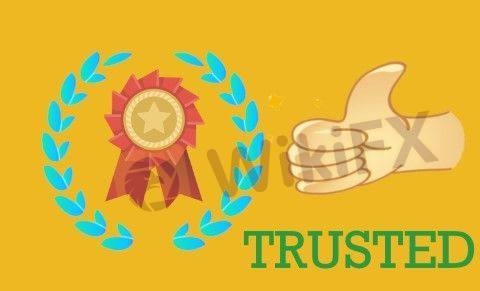
Best Forex Brokers in 2024
Guide to the most trusted Forex brokers, with a thorough investigation into their quality, security measures, and financial transparency.


